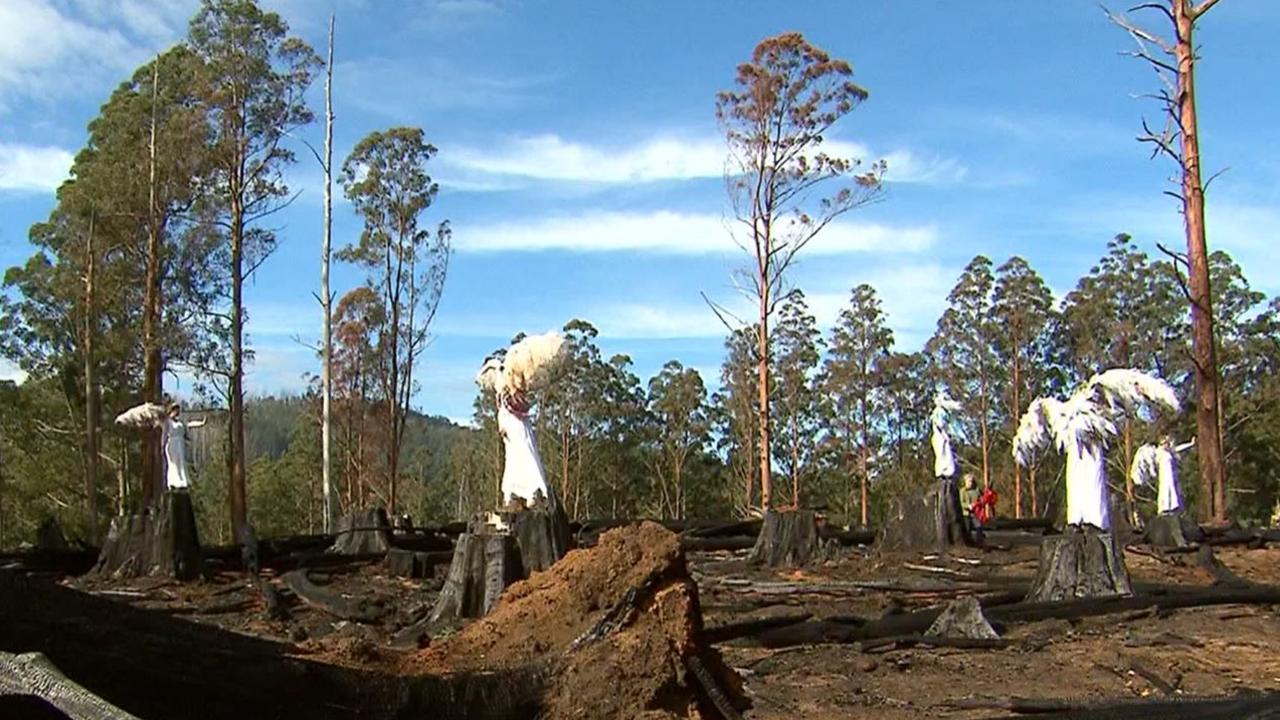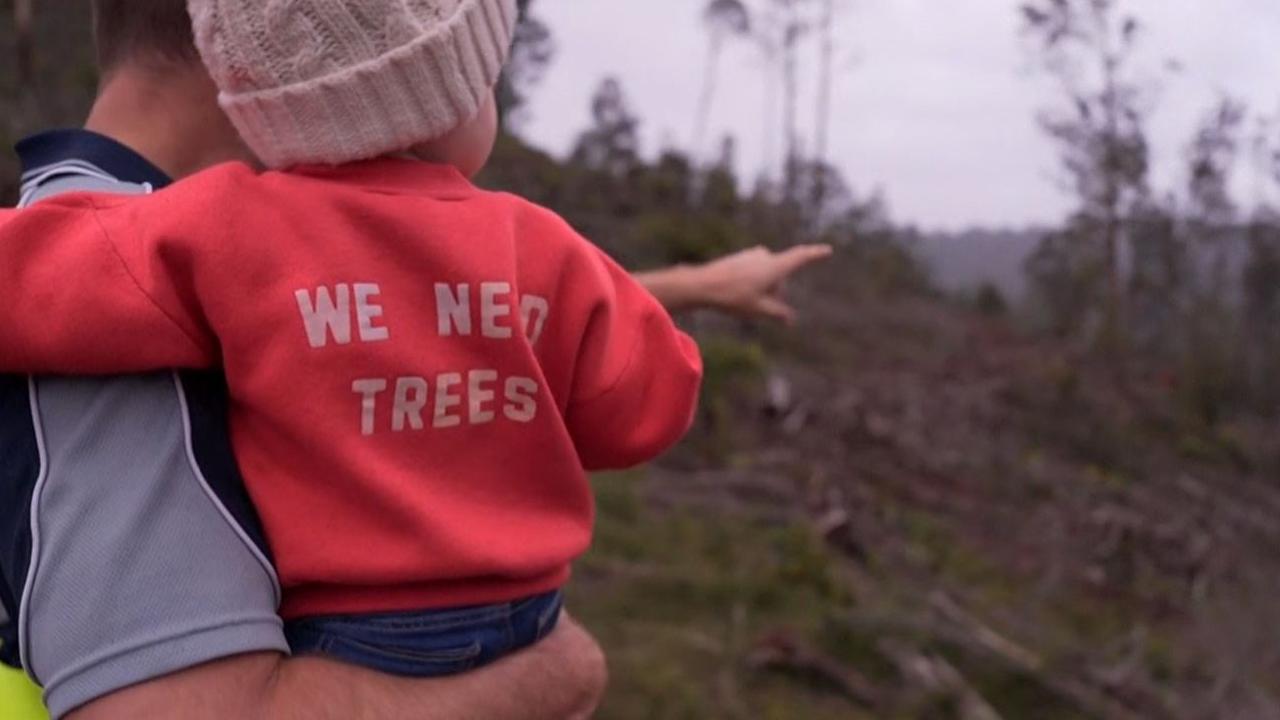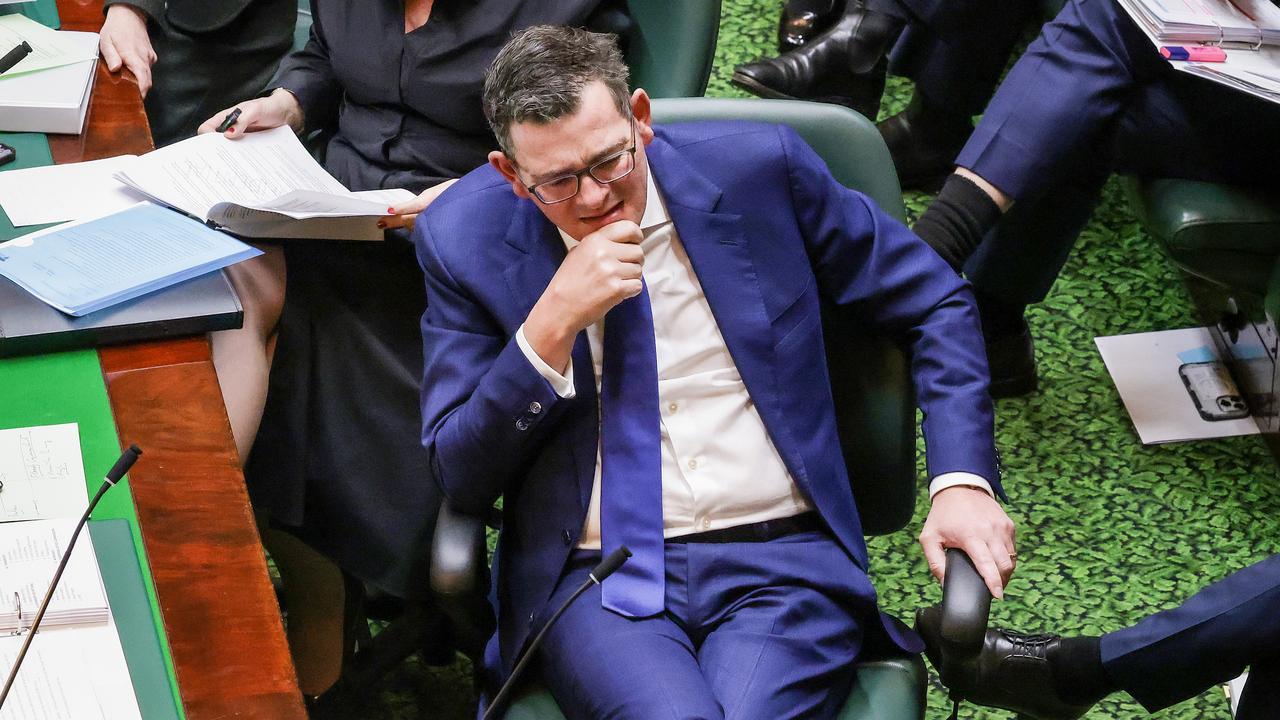Native timber industry’s closure leaves one young local in tears
The grade 4 student became emotional while expressing his fears that with the loss of his father’s job his family might struggle to eat.
A young boy has broken down in tears on television, crying that his family has “no money” now that his father has lost his job in the closure of Victoria’s native timber industry.
Grade 4 and 5 students Oliver Jones and Indi Lockett spoke to Today reporter Izabella Staskowski, who was visiting Heyfield in Gippsland.
“I’m here today standing up for my future,” Indi said.
“My dad drives a log truck, so I’m here to support.”
Oliver said he had come out to “save his dad’s job”.
“What’s going to happen when he has no job, has no money?” he said.
“Can’t have food on the table.”

Staskowski reached out to comfort Oliver as he broke down in tears, while Indi reassured him “it’s OK”.
Victoria’s native timber industry is the lifeblood of many regional towns across the state, and its closure on January 1 is expected to cut around 4500 jobs from regional communities.
Hundreds of Heyfield residents came out to protest the decision, clinging to hope that perhaps the industry’s closure could be reversed.
Community members told Staskowski that they believed the industry would transition to plantation in 2030 and were blindsided by its closure being brought forward to the start of 2024.

Local resident Angela Savage said the decision had “such a huge ripple effect”.
Another local had a simple message – “timber towns don’t grow back”.
Residents defended the practice as “sustainable and renewable”, touring a nearby site to demonstrate how the native hardwood is logged before the area is burned, allowing the space to regenerate itself in an 80-year cycle.
The native timber industry is continuing in NSW and Tasmania, with workers devastated at the prospect of the timber being imported into Victoria.


Today host Karl Stefanovic said he had been deeply touched by seeing “the tears of that young fella”.
“You try and shield your kids but … the people from Gippsland are going through a lot,” he said.
Daniel Andrews defended the industry’s closure being brought forward six years, a decision announced in the state budget earlier this month,
The Premier said he wasn’t “here to be popular”.
“I fully acknowledge that there were some very difficult decisions that had to be made in this budget, and I’m not about kicking things down the road,” he said.
“A number of judgments have been handed down by judges, not by the government, and we’ve got a plan to exit native timber harvesting at the end of this decade.
“We’re going to wrap support around each of those workers and their families.”

The Victorian government pledged an additional $200m in support of workers and their families after the transition away from native timber logging was brought forward.
The expanded support package was announced earlier this month as part of the state budget, with government support for the transition to plantation timber now totalling more than $875m.
Environmental groups and the Greens have welcomed the industry’s closure, with the party’s leader Adam Bandt crediting the outcome to “relentless people power”.
“To the activists who put everything on the line to protect First Nations heritage, Victoria’s forests, and every creature that calls them home – thank you,” he said on Twitter.
This is what relentless people-power can do.
— Adam Bandt (@AdamBandt) May 23, 2023
To the activists who put everything on the line to protect First Nations heritage, Victoria's forests, and every creature that calls them home - thank you. pic.twitter.com/DylaXn0ASl
More Coverage
State-owned logging company VicForests stopped harvesting in November 2023 following a ruling against it in the Supreme Court, limiting the industry’s output.
VicForests was found to have broken the law by failing to adequately protect two glider species in Central Victoria and Gippsland and was ordered to undertake more rigorous surveying for the yellow-bellied glider and endangered greater glider as well as implement environmental protection for the two species.
Severe bushfires, prolonged legal action and court decisions were cited by the government as the reasons for bringing the deadline forward.




